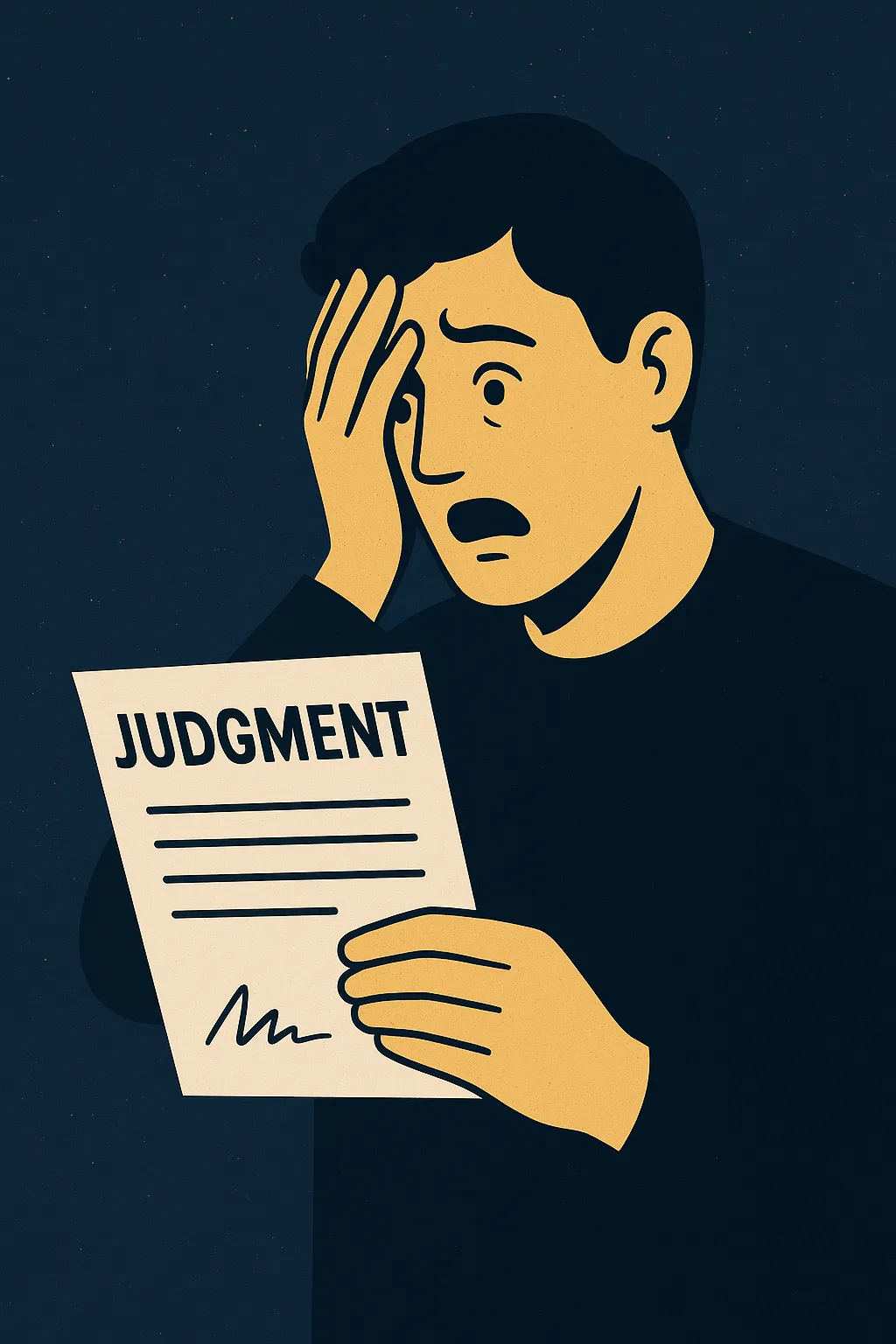
3 Ways to Deal With a Default Judgmentment Before It Ruins Your Finances
If you’ve just discovered that a default judgment has been entered against you, maybe through a wage garnishment, a frozen bank account, or a negative mark on your credit report, you’re not alone.
Thousands of New Yorkers face this situation every year, often without ever realizing they were sued in the first place.
The good news is: a default judgment is not always the end of the story. You still have options to fight it, settle it, or even eliminate it entirely.
Here are the three main ways to deal with a default judgment and protect your finances.
1. Fight It — File a Motion to Vacate the Judgment
If you were never properly served with the lawsuit or had a valid reason for not appearing in court, you may be able to have the judgment vacated (set aside).
In New York, this process is governed by Civil Practice Law and Rules (CPLR) § 5015, which allows a party to ask the court to vacate a judgment for specific reasons such as:
Lack of proper service (you were never notified of the lawsuit),
Excusable default (for example, illness or misunderstanding),
Newly discovered evidence, or
Fraud, misrepresentation, or misconduct by the opposing party.
Courts in New York take service of process very seriously. If the creditor or debt collector did not serve you properly, everything that followed, including the judgment, may be legally void.
Example:
If the process server claims they delivered the summons to your home while you were out of state, at work, or even incarcerated, you can show proof (travel records, work logs, or jail records) to demonstrate improper service.
If the court grants your motion, the judgment is vacated and the case reopens, giving you the chance to defend yourself properly. It doesn’t erase the lawsuit itself, but it resets the process so you can fight back.
⚖️ Note: While CPLR § 5015 applies specifically in New York, other states have similar rules (often under Rule 60 of their Civil Procedure Rules). The exact process and deadlines vary by jurisdiction, so always check your state’s specific laws or consult an attorney licensed there.
2. Settle It — Negotiate a Reduced Payoff
If fighting the judgment isn’t practical, for example, if service was proper or the motion deadline has passed, you can often negotiate a settlement with the creditor.
Many collectors will accept 20%–50% of the balance as a lump-sum payment to close the file, especially if they haven’t yet started collection actions like wage garnishment or bank levies.
Settling allows you to:
Avoid additional interest and legal fees,
Stop garnishments and levies,
And obtain written proof that the judgment is satisfied.
Always make sure the settlement agreement is in writing and clearly states that the judgment will be marked “satisfied” once payment is made.
3. Eliminate It — File for Bankruptcy (The Nuclear Option)
If you’re facing multiple judgments or unmanageable debt, bankruptcy may provide a clean slate.
A Chapter 7 bankruptcy can discharge (eliminate) unsecured debts, including most credit card and debt collection judgments, and immediately stop all collection actions, wage garnishments, and levies.
While bankruptcy is a serious step and not suitable for everyone, it can:
Wipe out judgment debts,
Halt all collection activity, and
Give you a true financial restart.
Final Thoughts
A default judgment can feel overwhelming, but it’s not irreversible.
You have three main paths forward:
Fight it — File a motion to vacate (CPLR § 5015 in New York),
Settle it — Negotiate a reduced payoff, or
Eliminate it — File for bankruptcy.
Each situation is different, and the right approach depends on your state’s laws and the facts of your case.
If you’re in New York, our firm can review your judgment under CPLR § 5015 and determine whether it can be reopened or vacated.
Contact us today for a consultation to learn how we can help you stop garnishments, reopen judgments, and protect your financial future.